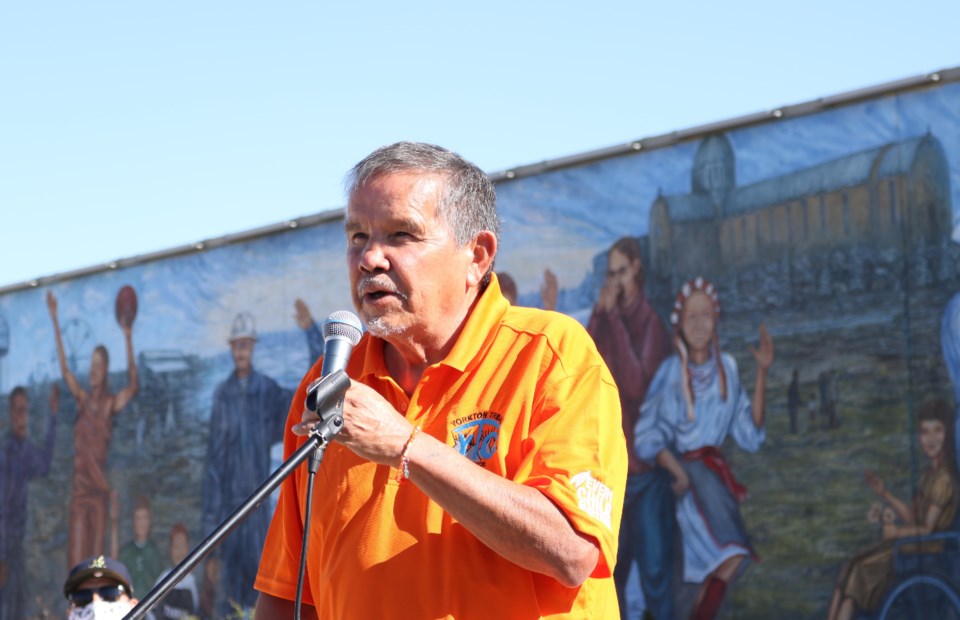Whitehawk told The National Day of Truth and Reconciliation event at City Centre Park in Yorkton Thursday for a long time it was actually suggested they not tell their stories.
Whitehawk said at one time people used to say “don’t talk about it. It’s the old days. It’s gone.”
And even personally it was hard to let out the pain.
“We weren’t allowed to cry ... at school or at home,” said Whitehawk.
So Whitehawk tried to bury the emotions.
“I hung on to what happened to me,” he said.
But, in time it had to come out that Whitehawk’s experience at the school was a traumatic one.
“They violated me,” he said, adding the hurt lasted and lasted. “It controlled most of my daily life.”
Whitehawk entered the school in 1956, and he recalls how he was crying the first day, and “somebody pulls my pants down.”
It was the first experience and Whitehawk said “life went blank for two-and-a-half years ... You lived in a life of fear 24/7. You were always on guard about what might happen next.
“It wasn’t nice. It affected my adult being as a man.”
It got worse too, with sexual abuse from a priest and a music teacher at the school.
Whitehawk recalled one night after visiting the priest he was asked by a caretaker “what were you doing in father’s room?
“I learned to tell lies there,” he said, adding he just said the priest “wanted to talk to me.”
Whitehawk said while the church comes under a lot of blame, “The faith had nothing to do with it. It was the people involved.”
The situation at home didn’t help Whitehawk either, with both his parents IRS survivors, and his father a Second World War veteran.
“It added to the chaos,” he said, adding he is from a family of 15.
It was a home life where Whitehawk said there was “abandonment. Yah, they (his parents) were there but I was never of any significance or importance to them.”
Whitehawk added they never told him he was loved, at least while sober.
But, when they were drunk “they were slobbering all over my face trying to tell me how much they cared.”
Whitehawk said the situation of First Nations was hurt when in 1960 they were allowed to buy liquor.
“For some reason they fell in love with it,” he said.
It was not the support system he needed.
“Our home – it wasn’t the best,” said Whitehawk.
And, in turn Whitehawk admitted he was not the father he now wishes he had been.
“One of the saddest things; I’ve never lived up to the dad role for my children,” he said.
In time Whitehawk would himself turn to alcohol and glue sniffing because of the inner pain.
“I always knew something was wrong with me,” he reflected.
It would be years before Whitehawk began to talk about his experience at a camp on the Key First Nation.
“I got into a discussion about healing. ... I got to talk about what was inside of me,” he said.
Talking helped.
“When you get on the inside of it, and talk about it, it’s a different story. A lot of emotions come out of it.”
Whitehawk said “I’d never say that I’m healed,” but he is a guy working through the process to be better.
“Let’s quit crying about yesterday, Let’s do the work (to better deal with issues), we need to do,” he said.



